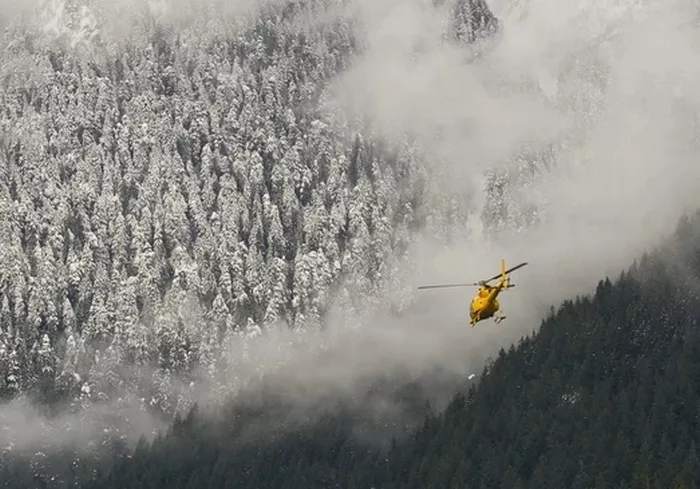After a challenging and incident-heavy month, British Columbia’s search-and-rescue organizations are cautioning outdoor enthusiasts about the growing trend of relying too much on AI tools and mobile apps when planning wilderness adventures.
A recent rescue on the slopes of Unnecessary Mountain sparked Lions Bay Search and Rescue team leader Brent Calkin to test an AI chatbot with some typical hiking questions. When he asked for “a snow-free hike I can do in May near Vancouver,” the AI reasonably suggested Buntzen Lake and Quarry Rock, along with a standard safety note to check trail conditions and bring the right gear.
However, a vaguer question — “a mountain I can climb near Vancouver” — brought up suggestions like the Lions or Panorama Ridge in Garibaldi Provincial Park, both of which still have snow cover in mid-spring and demand more advanced skills.
Calkin emphasized that the quality of the input greatly affects the output, but expressed concern that less experienced hikers may not know how to ask the right questions or interpret the responses safely.
Following a month in which several hikers required rescues after entering terrain that exceeded their abilities, multiple B.C. search-and-rescue groups have issued public warnings about the risks of overly depending on technology. These include AI-powered chatbots and mapping apps that may not reflect real-time or seasonal conditions.
One such incident involved two men who used ChatGPT and Google Maps to select a trail on Unnecessary Mountain. They wore flat-soled shoes, unaware they would encounter snow. Although they turned around upon realizing their mistake, they became unstable during the descent. Calkin’s team responded with proper boots and ski poles after asking for the hikers’ shoe sizes.
“That call made us realize we needed to remind people that chatbots and apps are not always the best tool for backcountry navigation,” Calkin said.
The warning echoes a similar alert issued by North Shore Rescue in December. In two separate incidents, hikers became stranded in snowy terrain after relying on hiking apps that recommended trails unsuitable for winter conditions.
“All you had to do was look at the tops of the mountains from Vancouver and know there’s snow up there,” searcher Allan McMordie told Postmedia News at the time. “To be in running shoes and not even expecting any snow was pretty naive.”
This problem extends beyond B.C. A recent report from Mountain Rescue England and Wales revealed that social media and digital navigation tools were significant contributors to a record number of rescue call-outs in the past year, especially among the 18 to 24-year-old demographic. According to The Guardian, rescue officials cited social media’s promotion of popular “honeypot” destinations and the limitations of some mobile apps, especially those that lack detailed information or offline capabilities.
While Calkin acknowledges that technology can be a powerful tool in the backcountry, he emphasized that it cannot replace proper planning, outdoor skills, and real-world experience.
“With all the information available online, it’s really easy for people to get in over their heads — and fast,” he said.
Ryan Stuart, a mountain biker and community engagement coordinator with the Outdoor Recreation Council of B.C., noted that while technology has helped remove some barriers to accessing nature — a generally positive trend — it has also allowed people to bypass traditional methods of learning and preparation.
“In the past, you might learn about a great trail by joining a hiking club and gaining experience along the way,” Stuart said. “Now, people find a trail on an app or Instagram and just go.”
He added that this shift often leads to a lack of awareness about the inherent risks and the necessary safety precautions.
According to Stuart, the key is not to avoid technology, but to use it wisely. He encouraged hikers to remain cautious about the potential pitfalls of relying on digital tools and to incorporate safety and preparedness into both their trip planning and the actual outdoor experience.
Related Topics
- Teen Hikers Rescued from Cliff on Stevens Creek Trail by Spokane Emergency Teams
- Hikers Face New Global Fees in 2025 as Countries Push for Sustainable Tourism
- Hidden Gems and Hills: A Scenic Trek from Tennessee Valley to Muir Beach

